In June 2022, Jannis and Leonie from Wibia e. V. travelled to Tanzania. During their two-month stay
on site, they visited the recently completed school, water and health station project in Kipunda.
They also visited the villages of Kititimo and N’Gongosoro, where various projects had already been
carried out in previous years. This report describes and explains the stay of the two association
members in Tanzania.
After landing at Kilimanjaro International Airport, which is about 45 km from Arusha, the journey
continued by bus to the Singida region. The first visit of the two Wibia e.V. members was to the
kindergarten in Kititimo. Kititimo is a growing village, only about 5 km away from Singida town
centre. Singida is the capital of the Singida region of the same name.
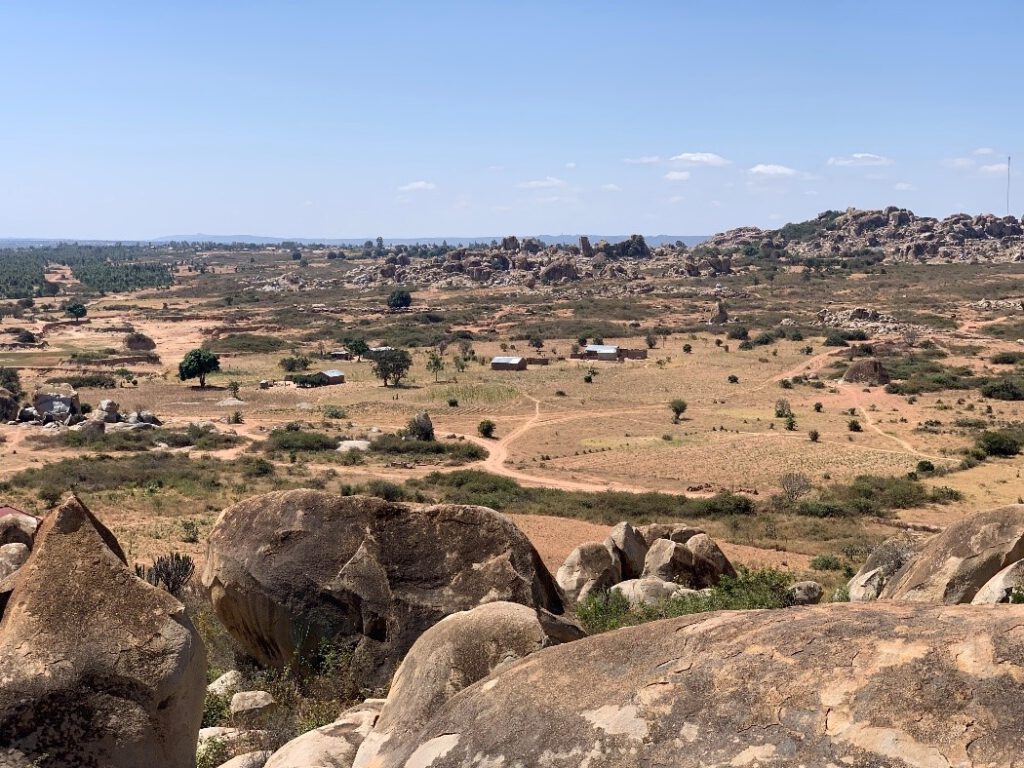
The kindergarten in Kititimo was completely financed by donations from Wibia e. V. in 2019. The
kindergarten was built by local craftsmen and villagers in direct cooperation with Wibia e. V. The
kindergarten is now in its third year of regular operation and is attended by 42 children. The children
are looked after by a teacher and receive a warm porridge drink once a day.
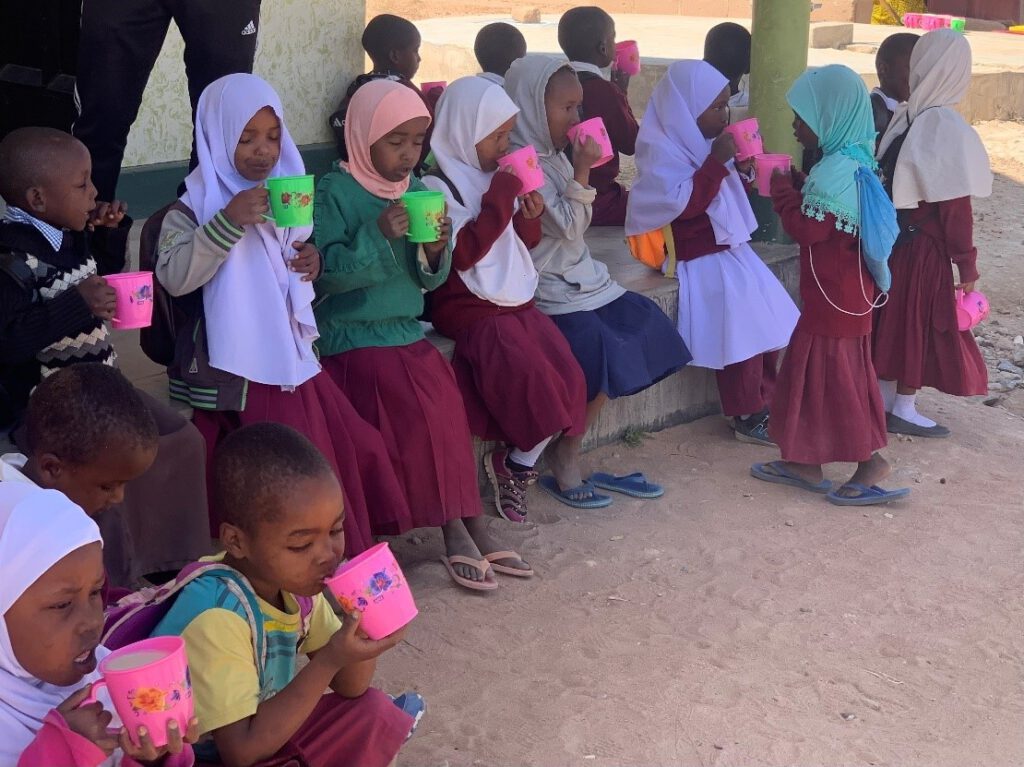
As the kindergarten is relatively small, it does not yet receive any support from the Tanzanian state.
The costs for the pedagogical management as well as for the porridge drink are borne by the
children’s parents themselves. The costs per child are about 1.20 € per month. However, sugar,
which is an ingredient of the porridge drink, cannot be financed from this income. Therefore, Leonie
and Jannis presented 50 kg of sugar as a guest gift on behalf of Wibia e.V.. In Tanzania, 1 kg of sugar
costs about 1 € – so sugar is comparably expensive as in Germany. However, if you compare the cost
of living in the two countries, it becomes clear how expensive sugar really is in Tanzania. According to
www.laenderdaten.info/lebenshaltungskosten.php, the „usual costs of daily consumption“ in
Tanzania are about 63% lower compared to the costs in Germany. The monthly income in Tanzania is
an average of €80, while in Germany it is €3,596. For this reason, the village and especially the
children were very happy about the donation of sugar. In addition, Leonie and Jannis gave the
children crayons, mandalas and frisbees to play with. As a thank you, the village organised a small
party and prepared a rice dish with meat for the children, the educator, local politicians and for the
two association members.
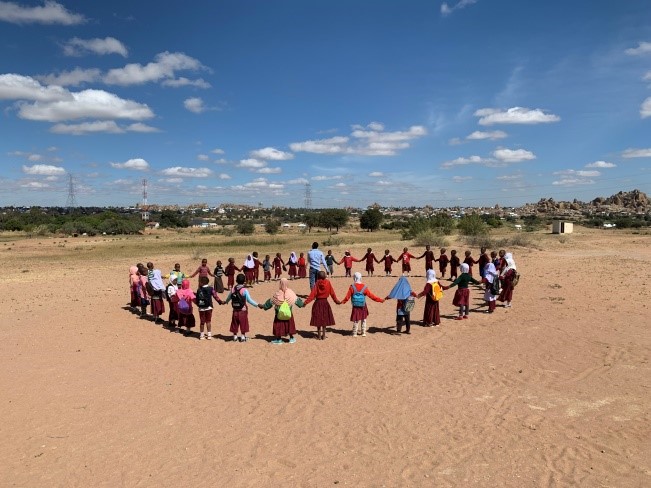
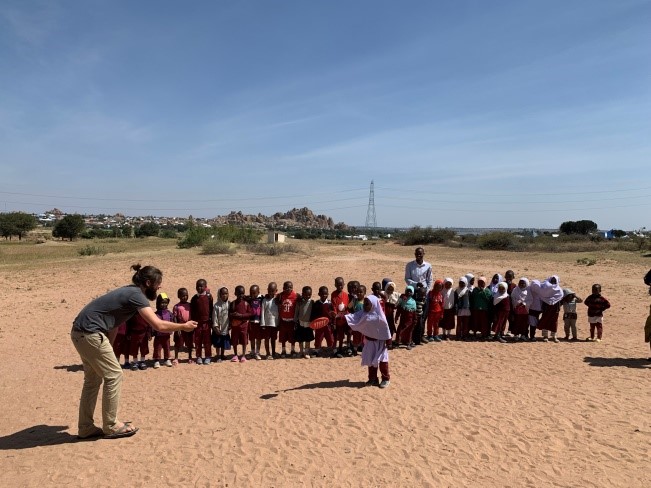
The next visit was to N’Gongosoro. Wibia e.V. had been able to realise several projects in the
N’Gongosoro Primary School in the past. These included the construction of a school building, an
underground water tank (cistern), the construction of toilets and the co-financing of school desks.
During this year’s visit, the old projects were discussed and new project proposals were discussed
and considered. Leonie and Jannis also brought small gifts for the pupils of this school. The children
were delighted to receive frisbees, footballs and new football shirts for the weekly football matches.
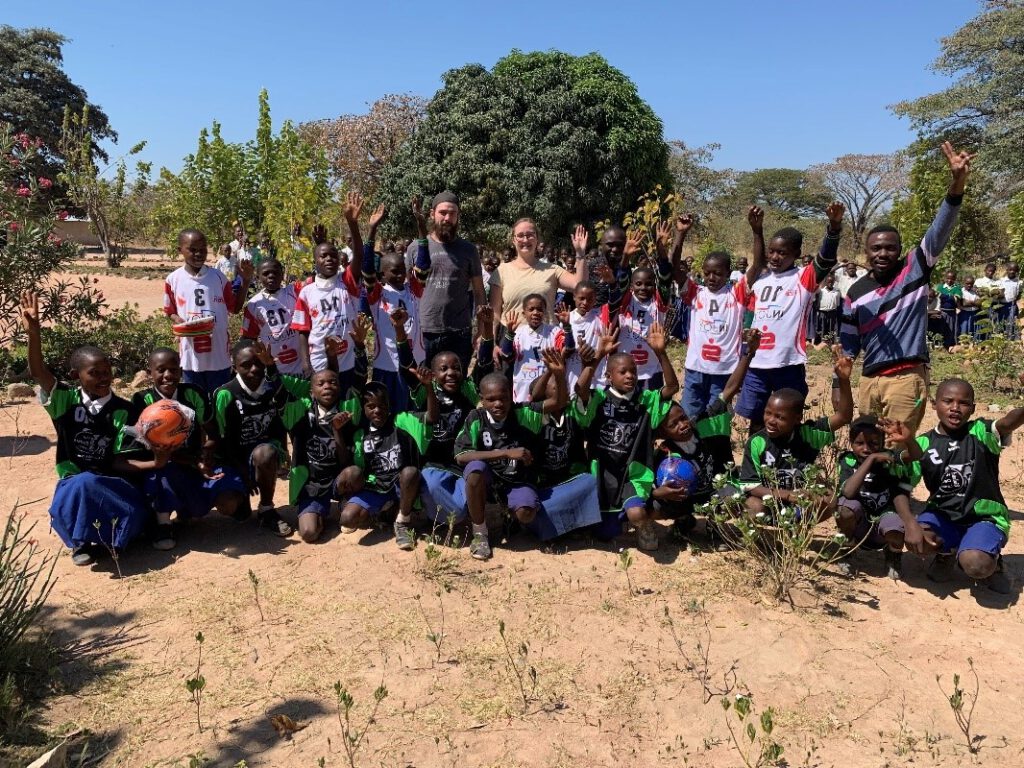
After the school visit, the two visited the local infirmary, which was also built with the help of Wibia
e. V.. The motivated team showed the visitors around the ward and proudly presented the wellequipped medicine room. The ward has recently been equipped with a solar refrigerator for
medicines, which was financed by the government. Among the 400 patients per month, about 40 are
Picture 5 The pupils with the new jerseys shortly before the football match
women giving birth. In order to reduce infant mortality and the mortality rate of mothers giving
birth, it has recently become compulsory in Tanzania to give birth in a hospital ward.
The hospital made a well-kept impression and the staff was happy about the visit.
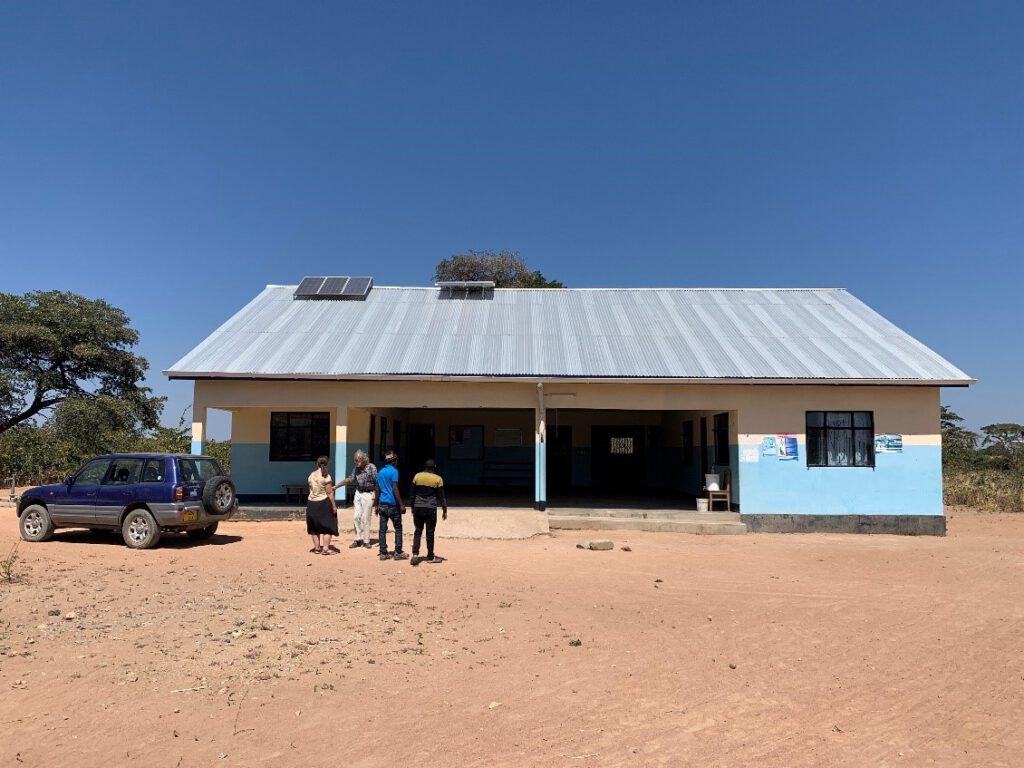
One of the oldest projects we support, thanks to your donations, is the Wibia Primary School. In
Wibia, Jannis and Leonie presented Frisbees and the Wibia e. V. wall calendar as a gift. With the
support of the association, school meals are provided at the school on a pro-rata basis. The children
and teachers were very happy about the visit of the two guests and they immediately tried out the
frisbees they had brought with them.
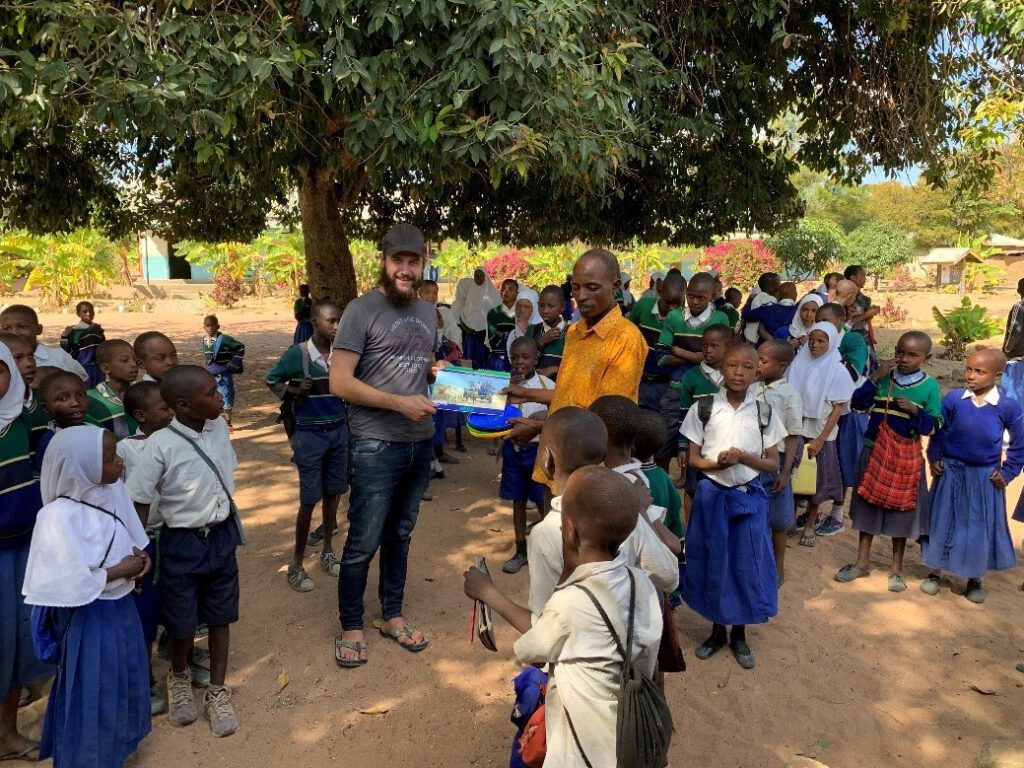
The main project, which Leonie and Jannis visited several times in 2022, is the school, water and
health station project in Kipunda. The project, which was delayed by Corona, included the
construction of a school building, a health station, staff houses and sanitary facilities as well as the
drilling of six deep wells. The village of Kipunda, which can be described as a scattered settlement, is
an hour’s drive from Singida town. The village community numbers about 3,000 people. In 2023,
Kipunda is expected to be connected to the public electricity grid. The few solar panels installed on
individual huts in the village will therefore have to suffice for the time being to operate mobile
phones, radios and electric lights for at least a few hours a day. Apart from the lack of electricity, the
village also has no drinking water supply. In the past, the villagers had to carry water from water
sources such as rivers and water holes into the village with buckets and canisters. Since the cattle
often drink from the same water sources, this way of fetching water is not only tedious but also
considered risky from a health point of view. Thanks to the six deep wells drilled at central locations
in the village, groundwater is now available to the village population. Thus, people no longer have to
drink from the same water sources as their farm animals.
Example fountain locations in Kipunda
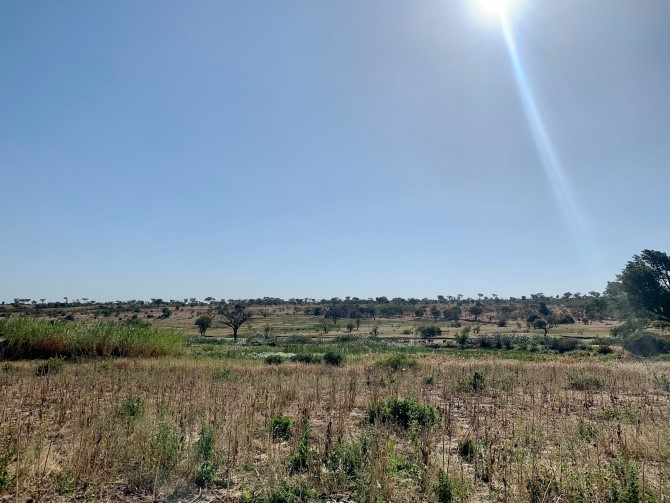
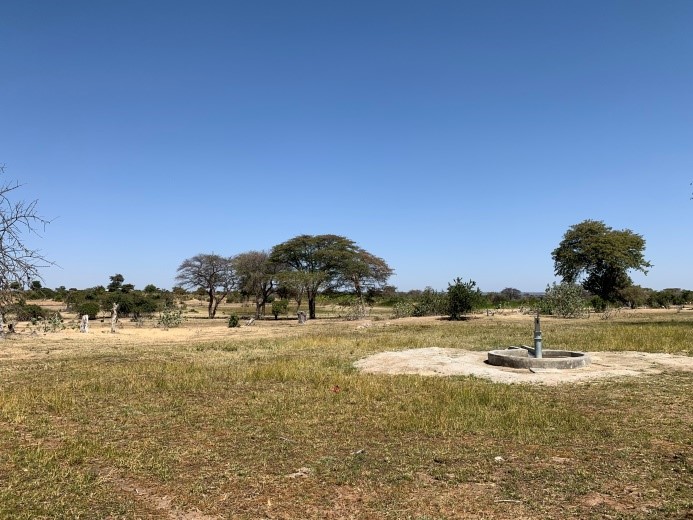
One of the deep fountains is located on the school grounds and complements the newly created
infrastructure there. In addition to a school building with two classrooms and an office, we were also
able to co-finance the construction of several toilets.
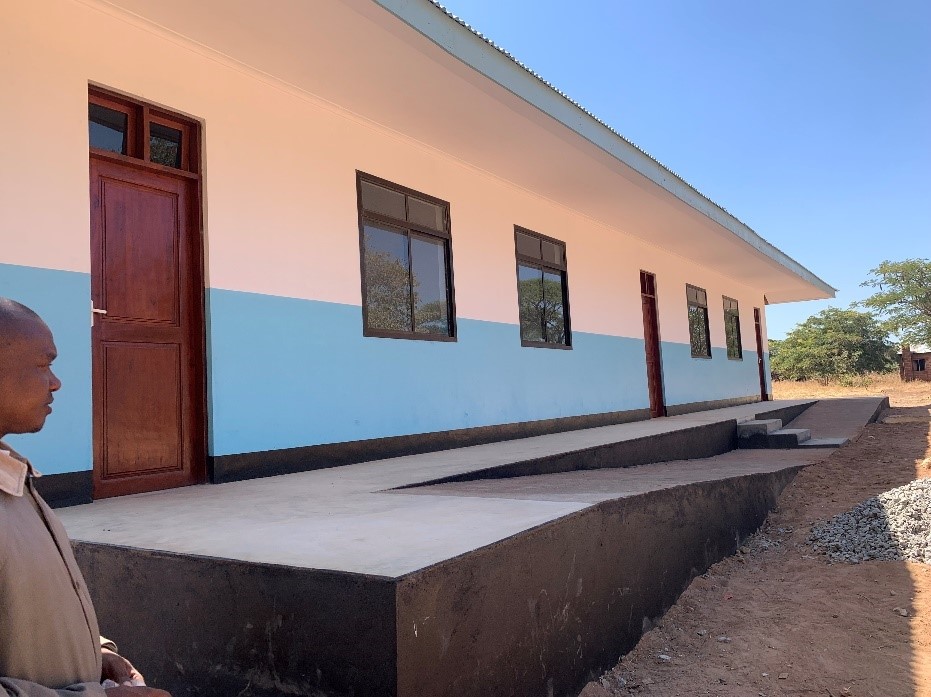
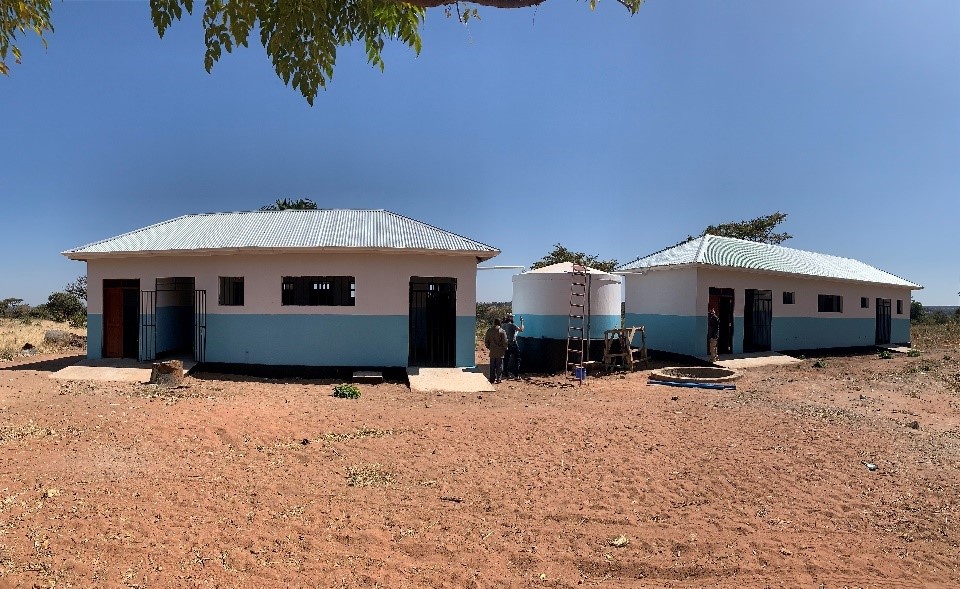
Another component of this project, which was co-financed by the Federal Ministry for Economic
Cooperation and Development in addition to the many private donations, is the newly built health
clinic in Kipunda. The infirmary has a solar system with its own battery storage. In addition, toilets,
hygiene facilities, water tanks and a staff house with two residential units were built.
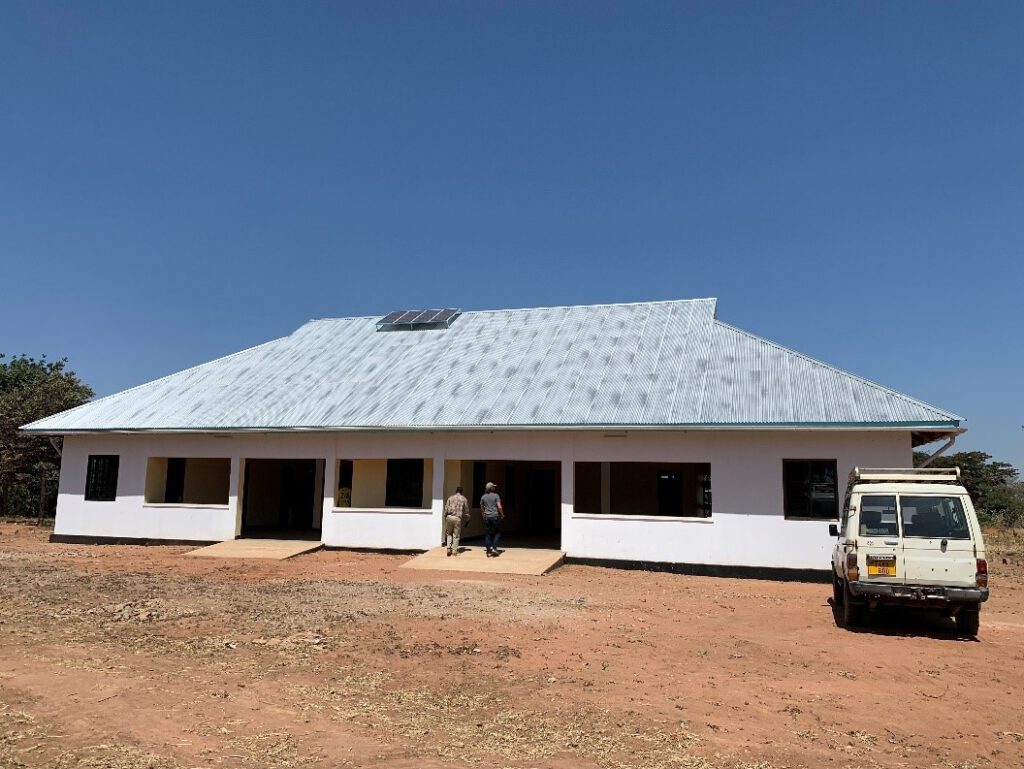
The entire project was realised in cooperation with the local NGO HAPA and executed to a very high
standard.
The highlight of this year’s trip to Tanzania, however, was without a doubt the opening ceremony of
the entire Kipunda project, to which Leonie and Jannis were invited. Besides dance, food,
performances by school children and opening speeches by politicians, it was a chance to make new
contacts and intensify existing ones. The following pictures should give an impression of the happy
and colourful celebration.
Opening ceremony in Kipunda
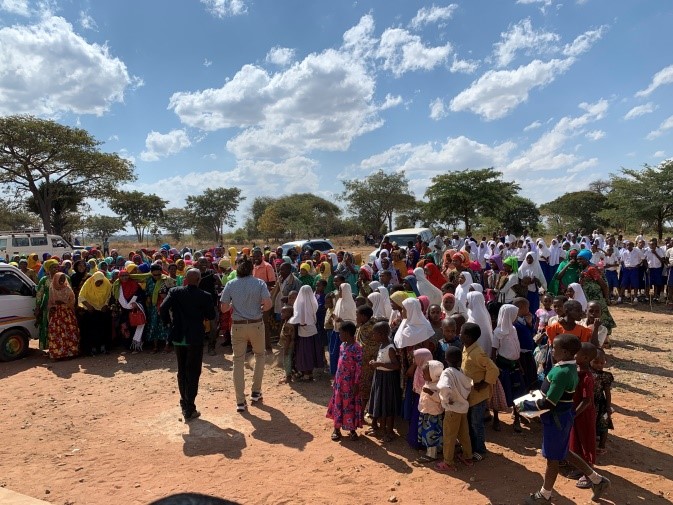
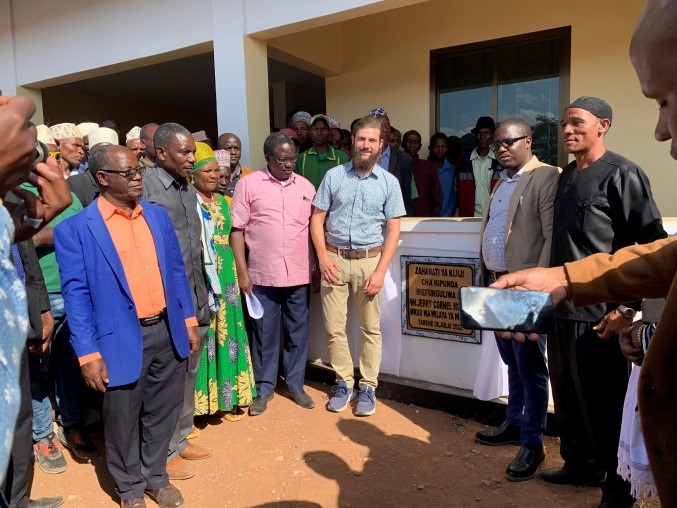
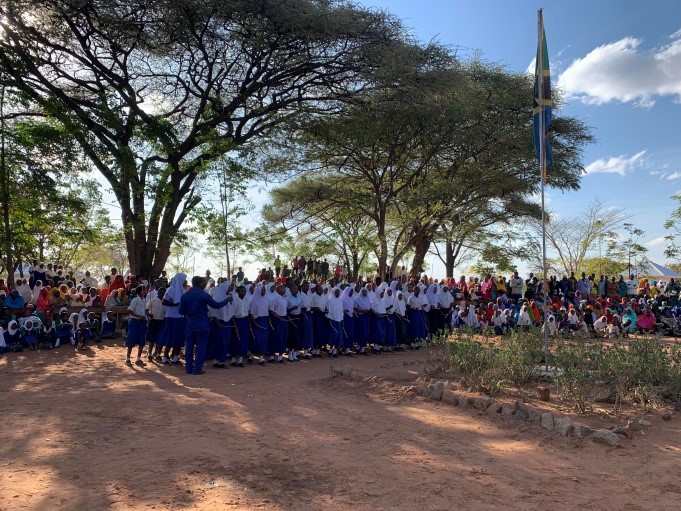
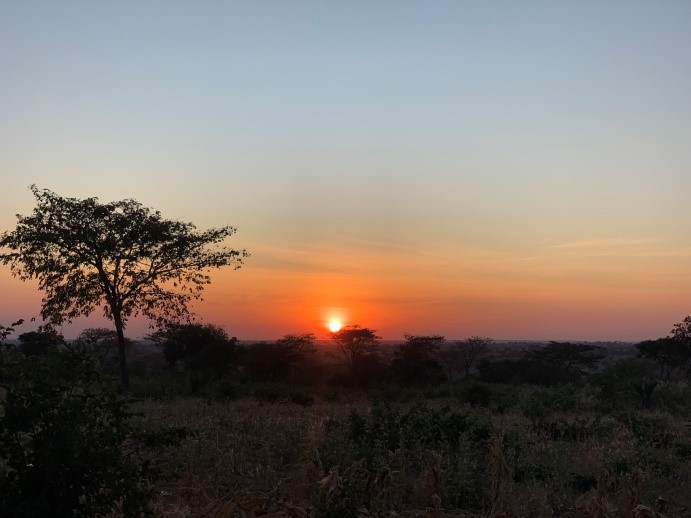
In addition to the projects described above, a school for people with special needs was visited. At the
Veta Ndogo Saba Saba school, a total of 280 people of different ages learn, 115 people live there. The
pupils have the opportunity to gain practical experience and learn a trade in a tailoring class,
hairdressing school, metal workshop, carpentry or a handicrafts class. Some time ago, Wibia e.V.
received a donation in kind in the form of various pliers and screwdrivers from Orbis Will GmbH + Co
KG. A selection of these tools was handed over to the school and are now being used in the various
training centres. Wibia e. V. would like to thank the company for this donation!
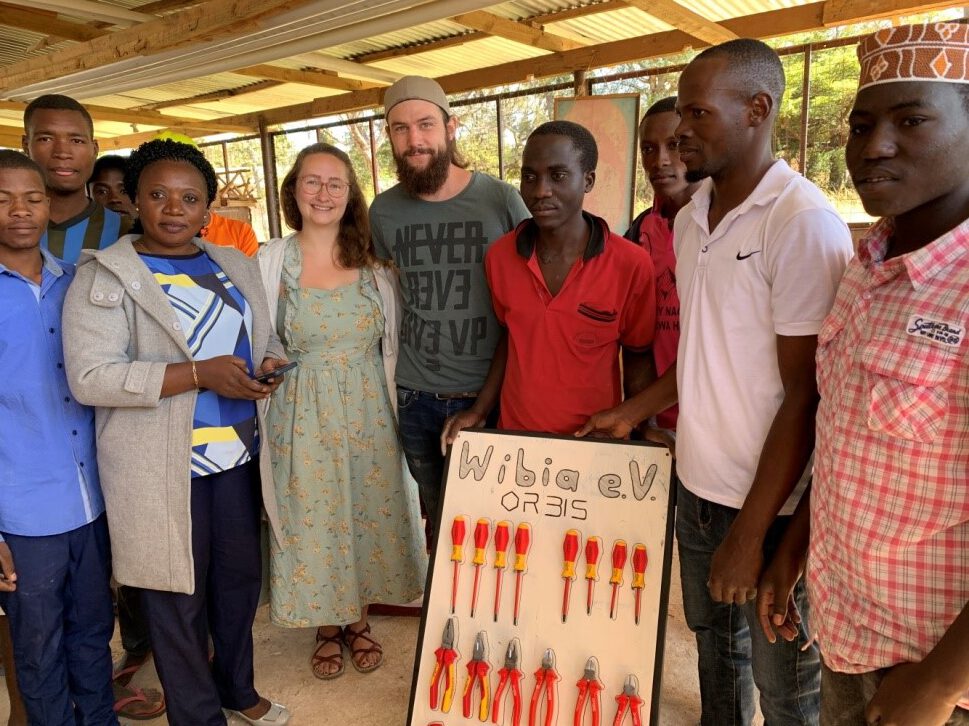
Wibia e. V. would like to thank you, our donors, without whom the entire project work in Tanzania
would not be possible. We are proud that we were able to implement the project in Kipunda through
your support and thus make a sustainable positive contribution to the development of the village in
Kipunda.
We are looking forward to further projects in Tanzania, which we hope we can implement in the
future with your continued support.
2022 Wibia e. V.